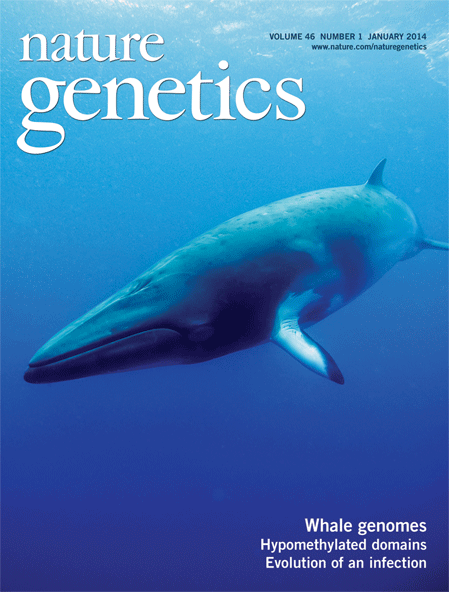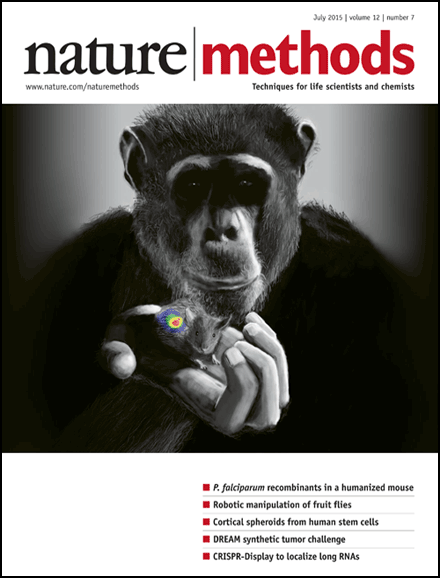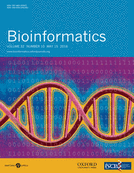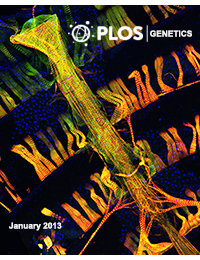Reproducibility with Snakemake and Bioconda
Johannes Köster
https://koesterlab.github.io



dataset
results
Data analysis
"Let me do that by hand..."

dataset
results
dataset
dataset
dataset
dataset
dataset


"Let me do that by hand..."
Data analysis
dataset
results
dataset
dataset
dataset
dataset
dataset
automation
From raw data to final figures:
- document parameters, tools, versions
- execute without manual intervention
Reproducible data analysis
dataset
results
dataset
dataset
dataset
dataset
dataset
scalability
Handle parallelization:
- execute for tens to thousands of datasets
- efficiently use any computing platform
automation
Reproducible data analysis
dataset
results
dataset
dataset
dataset
dataset
dataset
Handle deployment:
be able to easily execute analyses on a different machine
portability
scalability
automation
Reproducible data analysis
dataset
results
dataset
dataset
dataset
dataset
dataset
scalability
automation
portability


Genome of the Netherlands:
GoNL consortium. Nature Genetics 2014.
Cancer:
Townsend et al. Cancer Cell 2016.
Schramm et al. Nature Genetics 2015.
Martin et al. Nature Genetics 2013.
Ebola:
Park et al. Cell 2015
iPSC:
Burrows et al. PLOS Genetics 2016.
Computational methods:
Ziller et al. Nature Methods 2015.
Schmied et al. Bioinformatics 2015.
Břinda et al. Bioinformatics 2015
Chang et al. Molecular Cell 2014.
Marschall et al. Bioinformatics 2012.









dataset
results
dataset
dataset
dataset
dataset
dataset
Define workflows
in terms of rules
Define workflows
in terms of rules
rule mytask:
input:
"path/to/{dataset}.txt"
output:
"result/{dataset}.txt"
script:
"scripts/myscript.R"
rule myfiltration:
input:
"result/{dataset}.txt"
output:
"result/{dataset}.filtered.txt"
shell:
"mycommand {input} > {output}"
rule aggregate:
input:
"results/dataset1.filtered.txt",
"results/dataset2.filtered.txt"
output:
"plots/myplot.pdf"
script:
"scripts/myplot.R"Define workflows
in terms of rules
Define workflows
in terms of rules
rule mytask:
input:
"data/{sample}.txt"
output:
"result/{sample}.txt"
conda:
"software-envs/some-tool.yaml"
shell:
"some-tool {input} > {output}"rule name
refer to input and output from shell command
how to create output from input
(shell, Python, R)
Directed acyclic graph (DAG) of jobs

dataset
results
dataset
dataset
dataset
dataset
dataset
scalability
automation
portability
Scheduling
Paradigm:
Workflow definition shall be independent of computing platform and available resources
Rules:
define resource usage (threads, memory, ...)
Scheduler:
- solves multidimensional knapsack problem
- schedules independent jobs in parallel
- passes resource requirements to any backend
Scalable to any platform



workstation
compute server
cluster






grid computing
cloud computing



dataset
results
dataset
dataset
dataset
dataset
dataset
Full reproducibility:
install required software and all dependencies in exact versions
portability
scalability
automation
Software installation is a pain
source("https://bioconductor.org/biocLite.R")
biocLite("DESeq2")easy_install snakemake./configure --prefix=/usr/local
make
make installcp lib/amd64/jli/*.so lib
cp lib/amd64/*.so lib
cp * $PREFIXcpan -i bioperlcmake ../../my_project \
-DCMAKE_MODULE_PATH=~/devel/seqan/util/cmake \
-DSEQAN_INCLUDE_PATH=~/devel/seqan/include
make
make installapt-get install bwayum install python-h5pyinstall.packages("matrixpls")Package management with
package:
name: seqtk
version: 1.2
source:
fn: v1.2.tar.gz
url: https://github.com/lh3/seqtk/archive/v1.2.tar.gz
requirements:
build:
- gcc
- zlib
run:
- zlib
about:
home: https://github.com/lh3/seqtk
license: MIT License
summary: Seqtk is a fast and lightweight tool for processing sequences
test:
commands:
- seqtk seqIdea:
Normalization installation via recipes
#!/bin/bash
export C_INCLUDE_PATH=${PREFIX}/include
export LIBRARY_PATH=${PREFIX}/lib
make all
mkdir -p $PREFIX/bin
cp seqtk $PREFIX/bin
- source or binary
- recipe and build script
- package
Easy installation and management:
no admin rights needed
conda install pandas
conda update pandas
conda remove pandas
conda env create -f myenv.yaml -n myenvIsolated environments:
channels:
- conda-forge
- defaults
dependencies:
- pandas ==0.20.3
- statsmodels ==0.8.0
- r-dplyr ==0.7.0
- r-base ==3.4.1
- python ==3.6.0Package management with

rule mytask:
input:
"path/to/{dataset}.txt"
output:
"result/{dataset}.txt"
conda:
"envs/mycommand.yaml"
shell:
"mycommand {input} > {output}"Integration with Snakemake
channels:
- conda-forge
- defaults
dependencies:
- mycommand ==2.3.1Over 3000 bioinformatics related packages


Over 200 contributors








Bioconda workflow

- recipe
- pull request
- automatic linting
- building
- testing
- human review
- merge
- upload

Builds and tests:
Paradigm:
- transparency
- open source build framework
- public logs
Conclusion
- For reproducible data analysis, three dimensions have to be considered.
- A lightweight yet flexible approach to achieve this is to use Snakemake and Bioconda/Conda.
portability
scalability
automation
Snakemake+Bioconda (short)
By Johannes Köster
Snakemake+Bioconda (short)
Short introduction to reproducibilty with Snakemake and Bioconda
- 2,378



